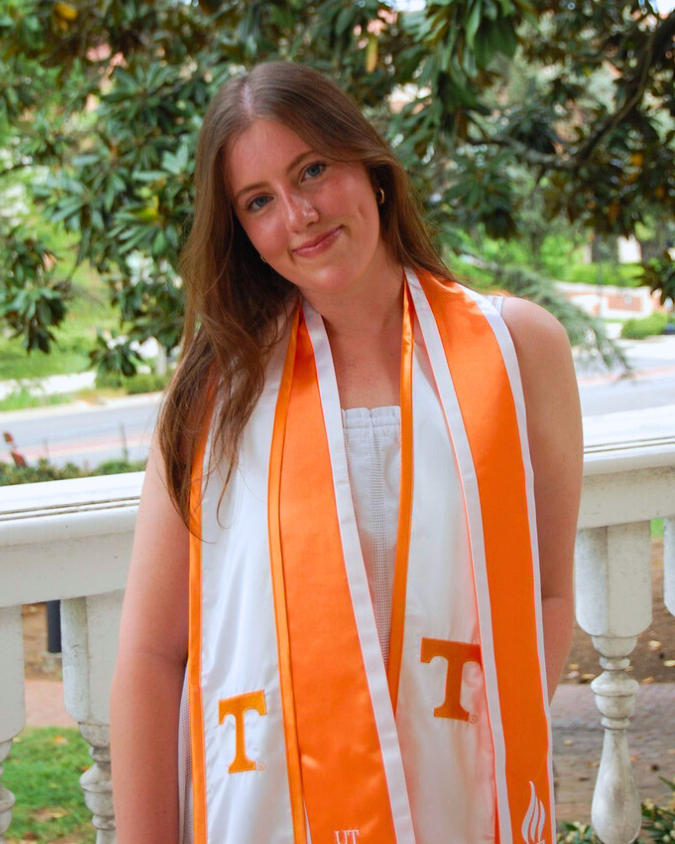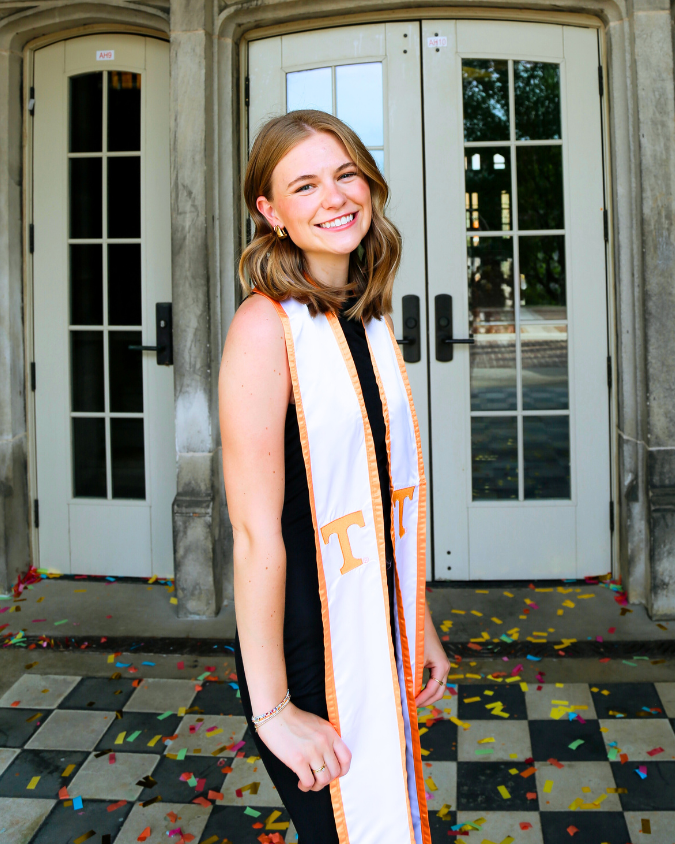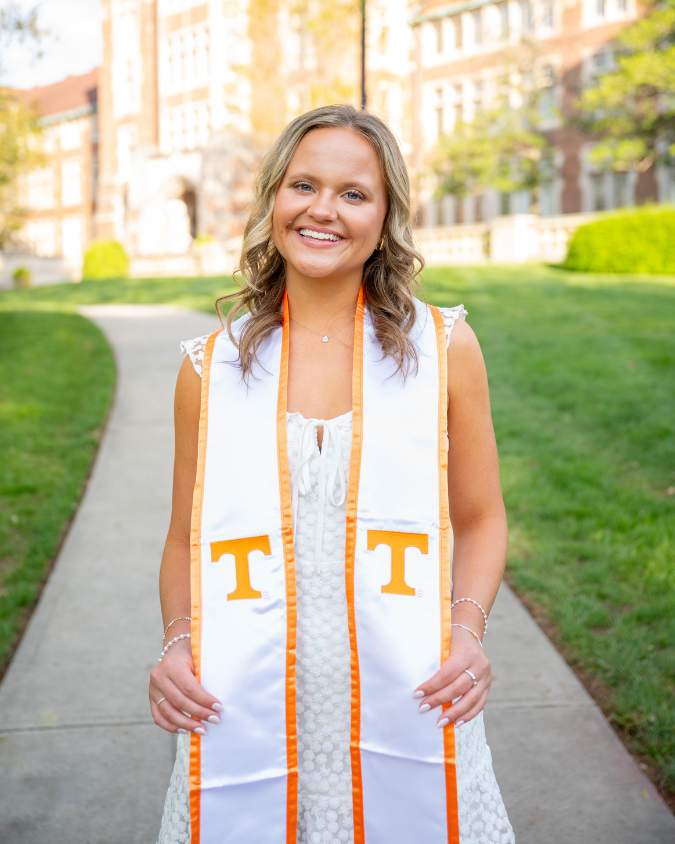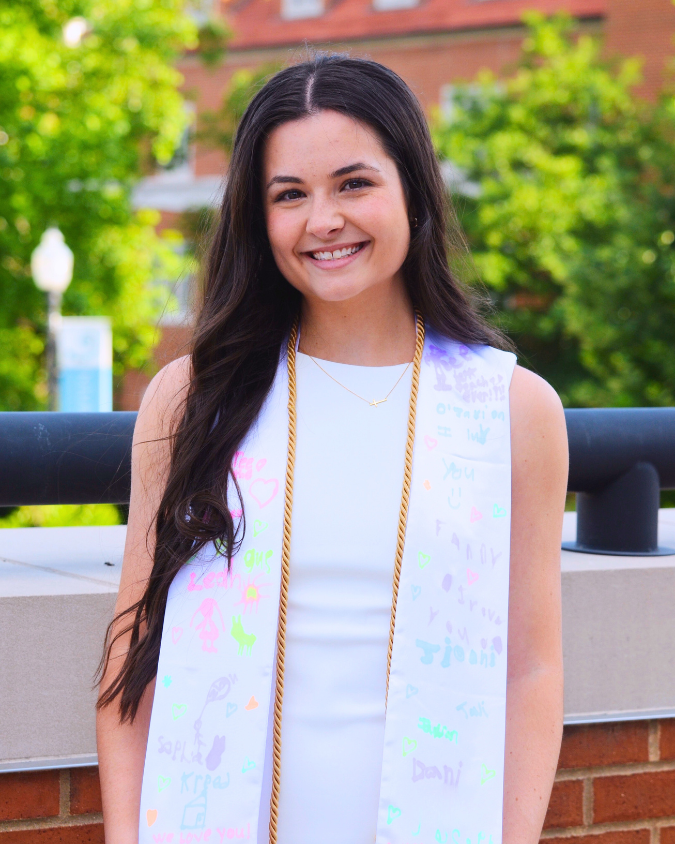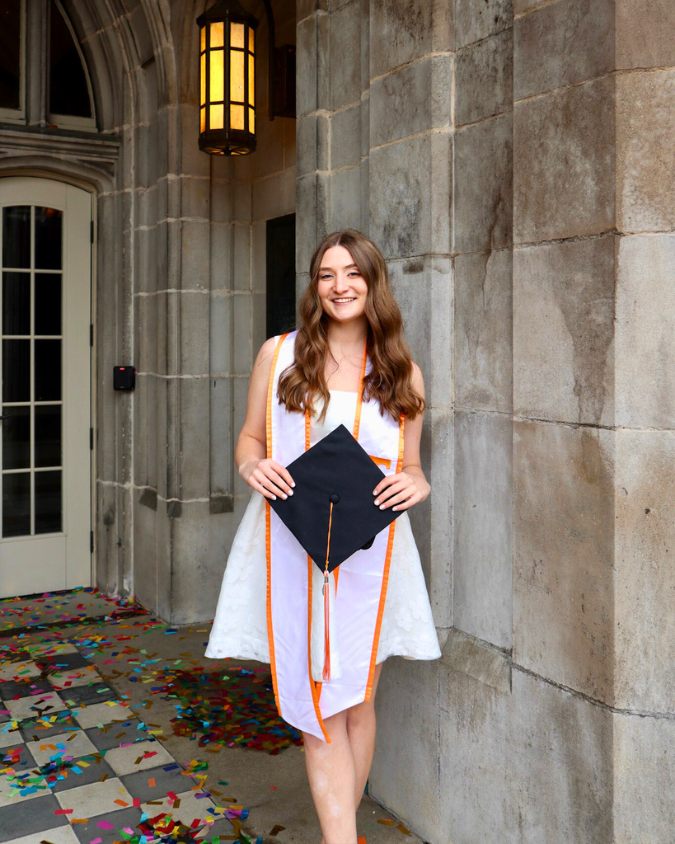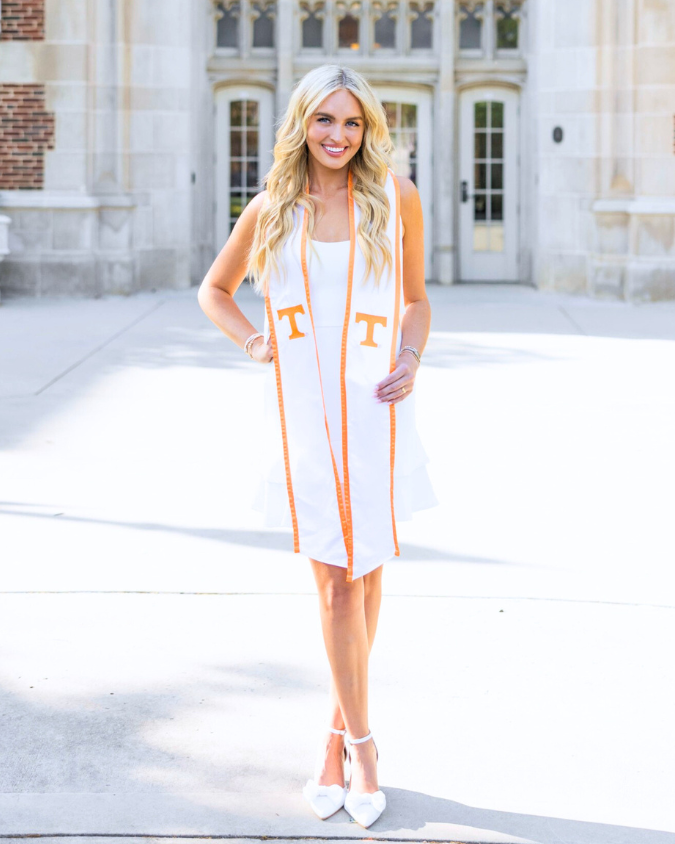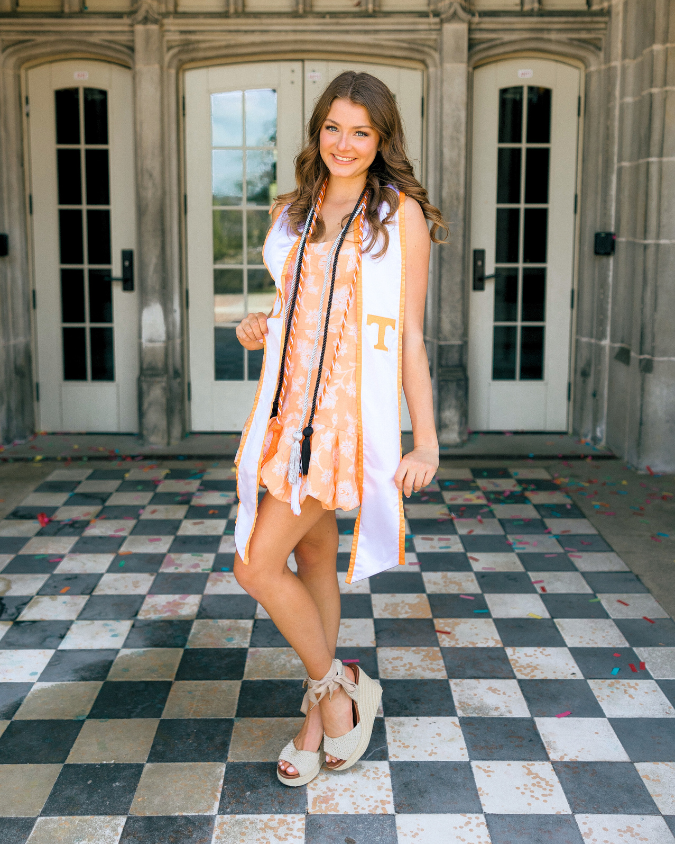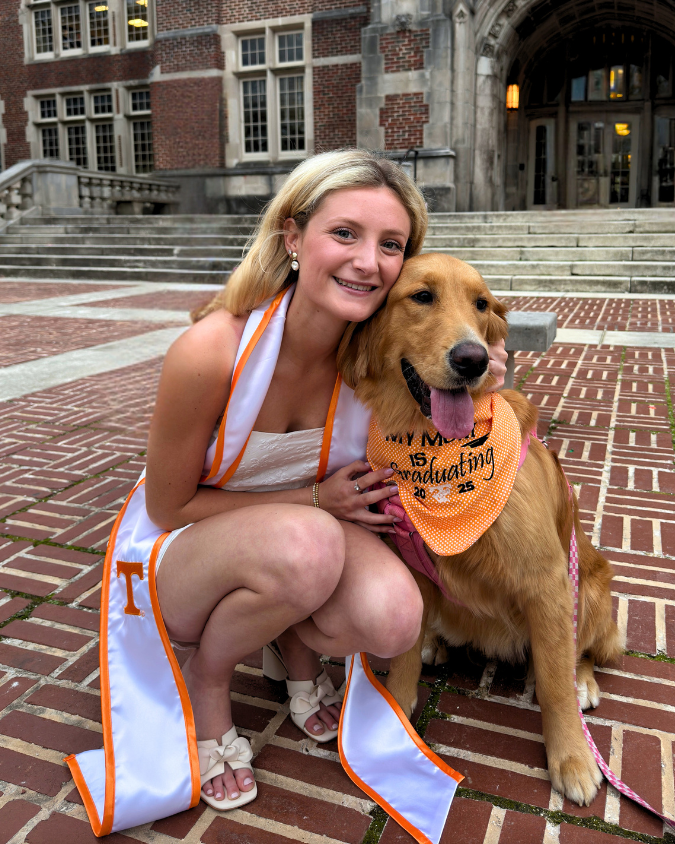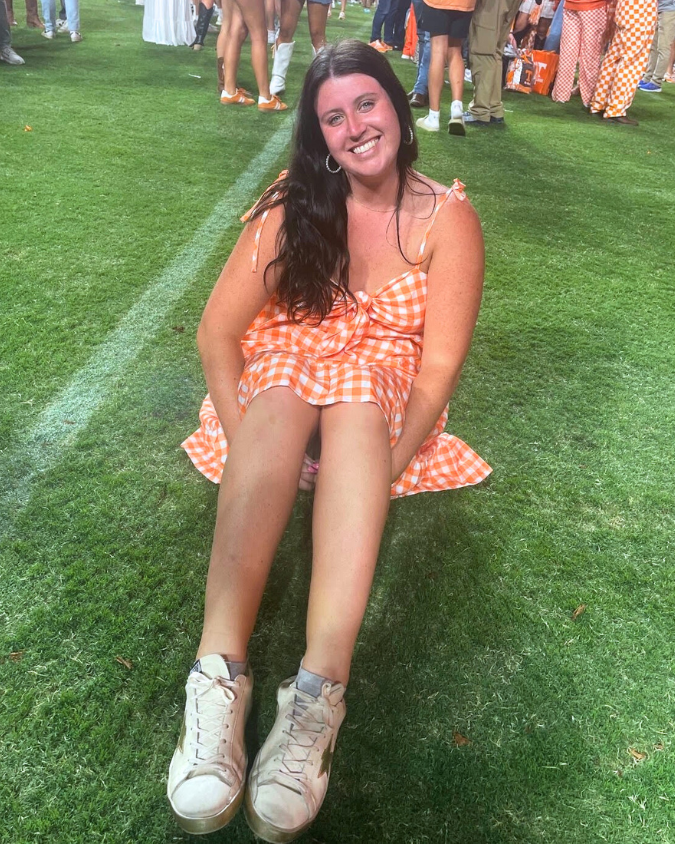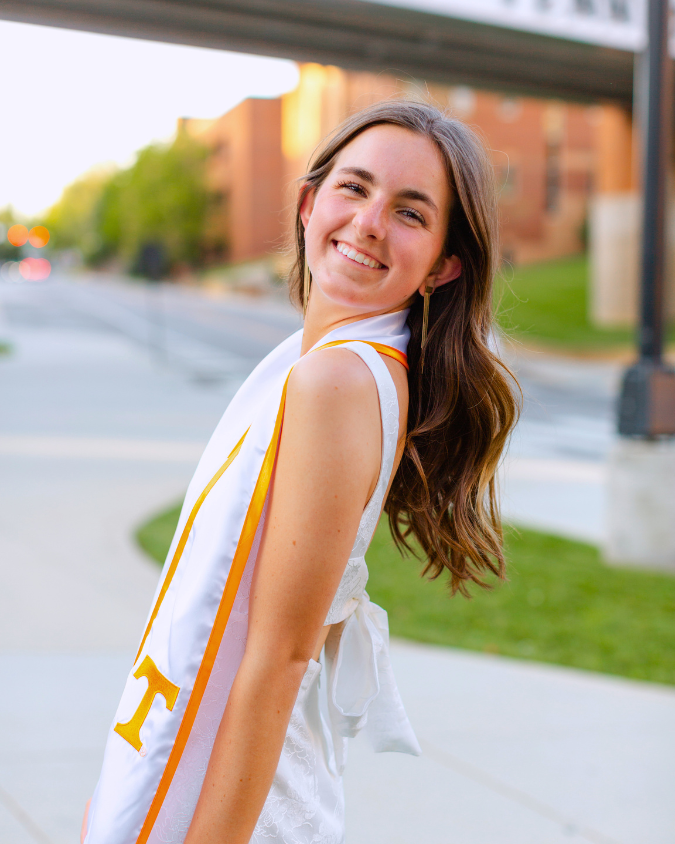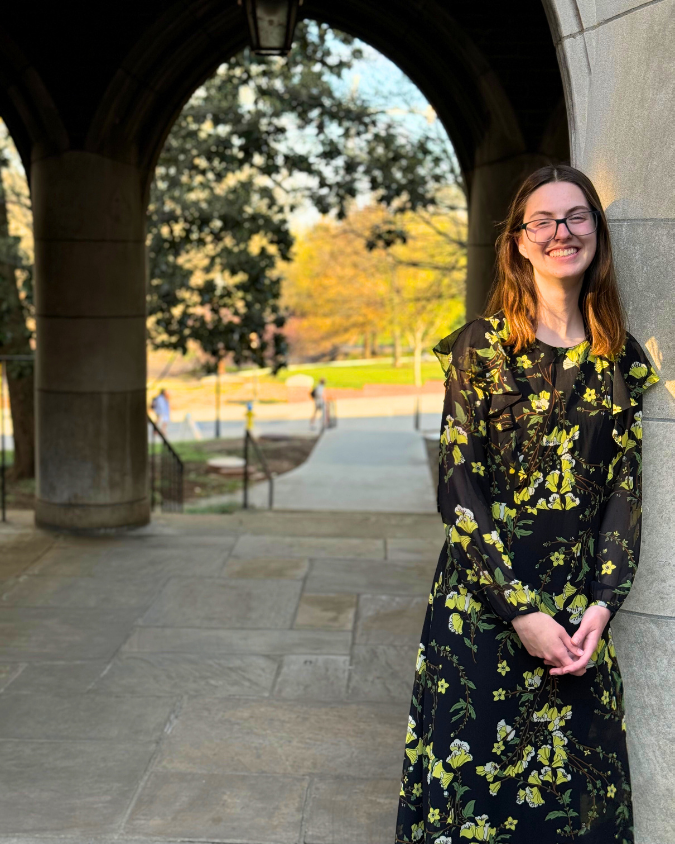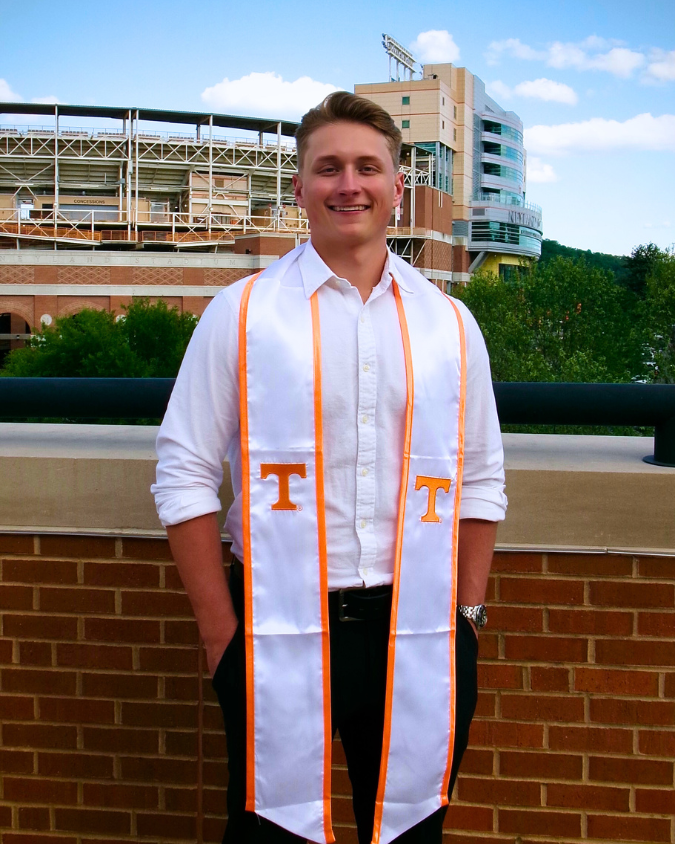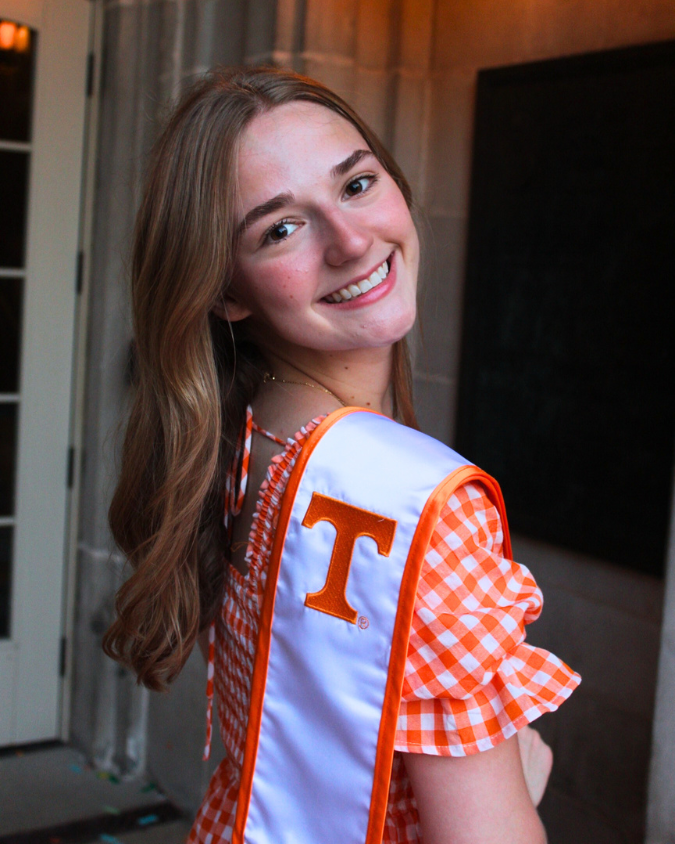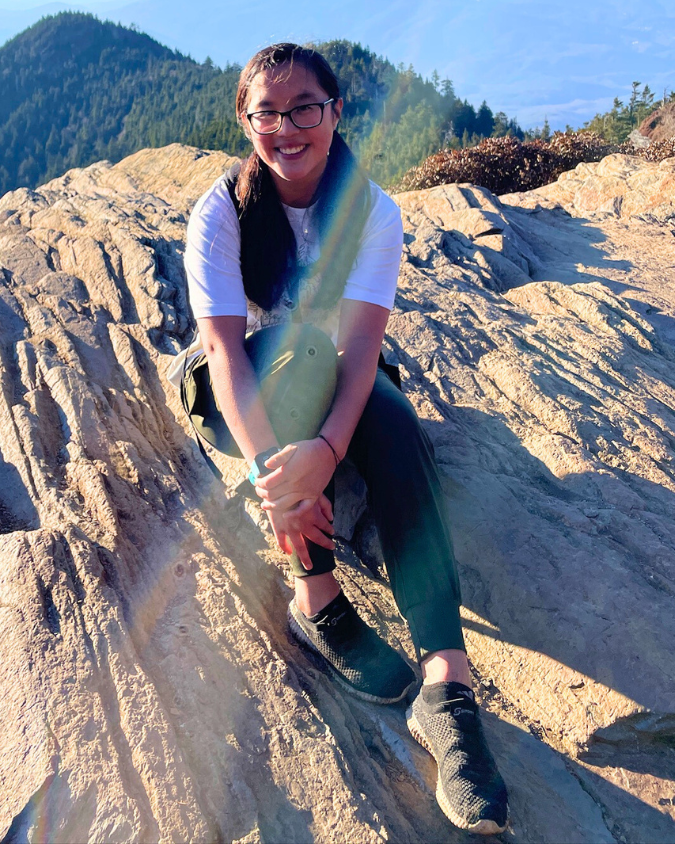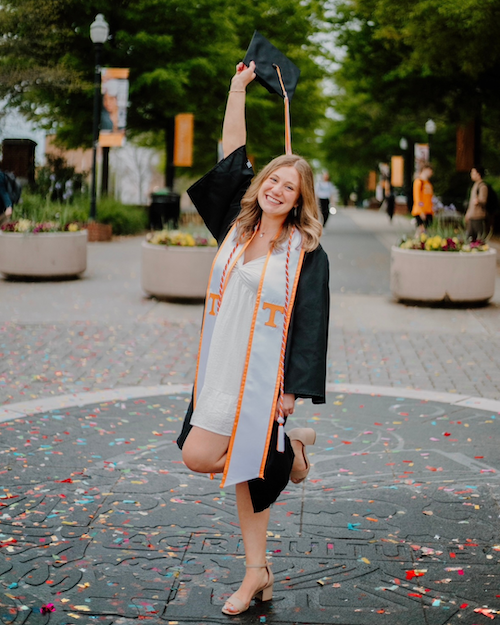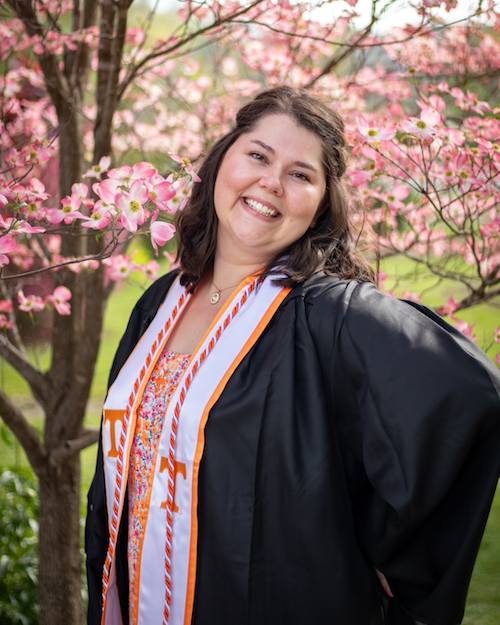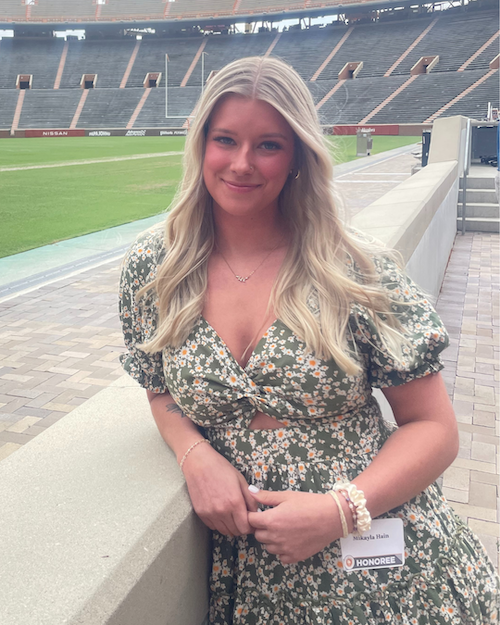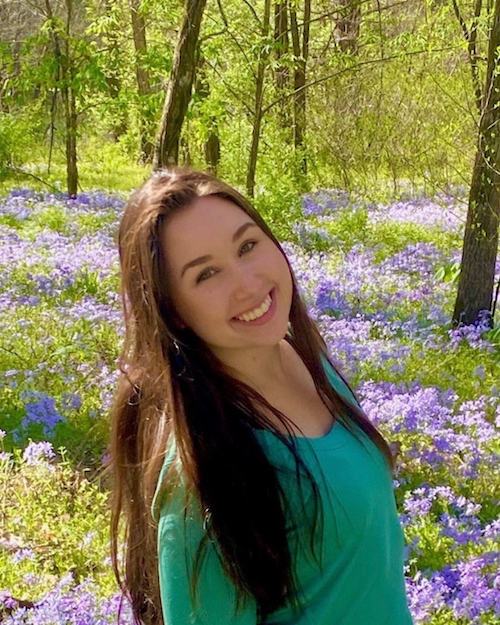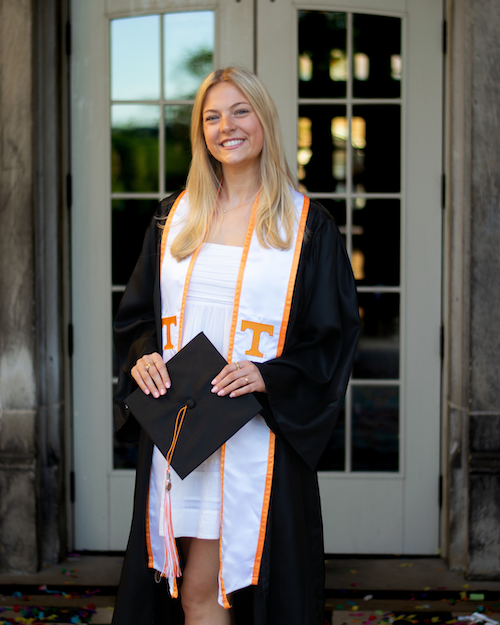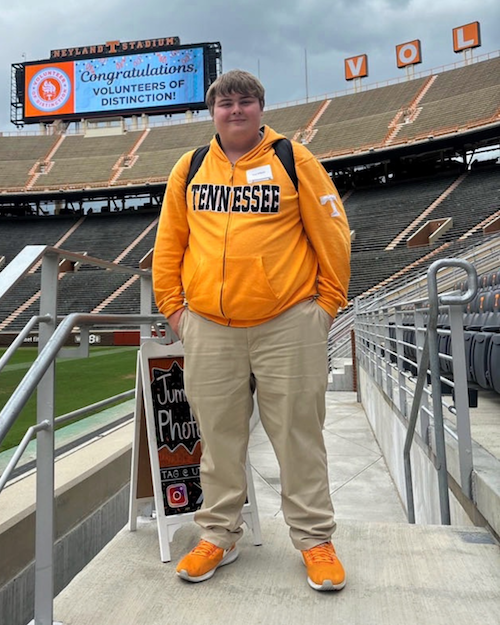2025 Educators Hall of Honor Inductees
2025 Educators Hall of Honor Inductees
In the hallowed halls where aspiring teachers learn, the Educators Hall of Honor represents all those who have passed along knowledge, understanding, creativity, and the joy of learning from one generation to the next. By touching the lives of others, educators make the world a better place for generations to come.
The preparation of educators has been a tradition of the University of Tennessee, Knoxville, since 1880. The College of Education, Health, and Human Sciences’ Educators Hall of Honor allows donors to offer a tribute to those special individuals who have inspired and shaped and transformed them. It is our hope that this permanent tribute to the large accomplishments and small miracles of the past will also inspire new generations of educators.
The Educators Hall of Honor Class of 2025 includes: Sarah DeYoung, Susan Espiritu, Marica Goldenstein, Bob Kesling, Charmaine Mamantov, Saundra McGuire, Sherry Morgan, David Royse, and Kirsten Salonga. Keep reading to learn about each inductee.
To see photos of from year’s induction ceremony, click here.
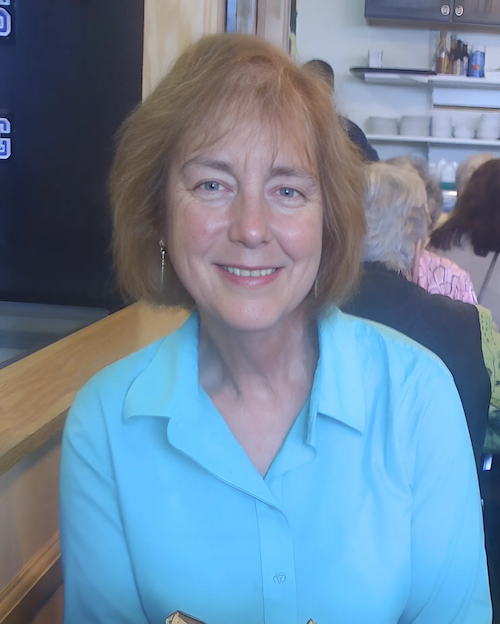
Sarah DeYoung
Sarah DeYoung attended Maryville College and had the honor of being selected co-chair of the All College Council which she co-chaired with the college president. Sarah graduated from Maryville College with a bachelor’s degree in English. She received her master’s degree in Educational Administration from the University of Tennessee. Her career positions included Admissions Counselor and Financial Aide Counselor at Maryville College, and Financial Aide Director and Director of Academic Advising for the College of Education, Health and Human Sciences at the University of Tennessee.
“Sarah’s leadership qualities made her an invaluable team member in the dean’s office. She was a natural leader and problem solver, always reliable and resourceful, extremely dedicated and hardworking. She always took the initiative to figure out what needed to be done with minimal guidance from me. For example, she developed procedures, protocols, and processes over the years for managing student services within the college and across departments. Those strategies ensured the smooth delivery of services to faculty in their advising roles to students, and to students, as recipients of that advising. I always valued her expertise and direction on student services processes. When I had to be away from the office, I depended on Sarah to step in and she always delivered ably.” — Delores E. Smith, Professor Emerita, UT Dept. of Child & Family Studies
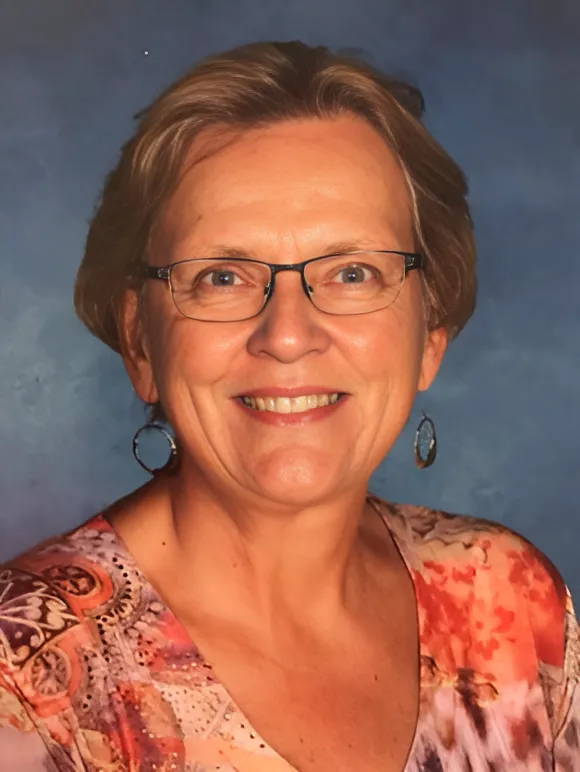
Susan Espiritu
Susan Espiritu retired from Knox County Schools after 35 years as an educator where she taught multiple grades in both elementary and middle schools. She also served as an academic coach for classroom teachers and concluded her career serving 16 years in the assistant and principal positions in three local elementary schools where she was voted by her peers the National Principal of the Year for Tennessee in 2012.
From Laura Haun, close family member, “I have been fortunate to watch and learn from Susan Espiritu over the years as an educator in many different capacities. Her life and service to education have gone far beyond the awards and accolades that she has received.
For over four decades, I’ve been privileged to watch her dedication to using and developing innovative teaching methods that foster learning in students of diverse ages, abilities, and socioeconomic backgrounds. She has challenged other educators not to fall into complacency when things are going well but to continuously grow and continue to find new ways of imparting knowledge while creating a fun environment.
The impact she has made in education and so many other industries is the epitome of the multiplier effect, where her influence has multiplied far beyond the results that she achieved on her own. While many educators chose the profession as a direct result of her example, many professionals are better in other industries because she taught, led, and guided them. I successfully run a division of the largest privately owned media company in the US because of the tenacity, development mindset, and innovative characteristics I learned from her. I pursued and received my DBA in Organizational Management so I could educate high school and college students in the same manner that she did. Additionally, Kalea Derry, her youngest daughter, became a teacher and college counselor because of Susan’s example.”
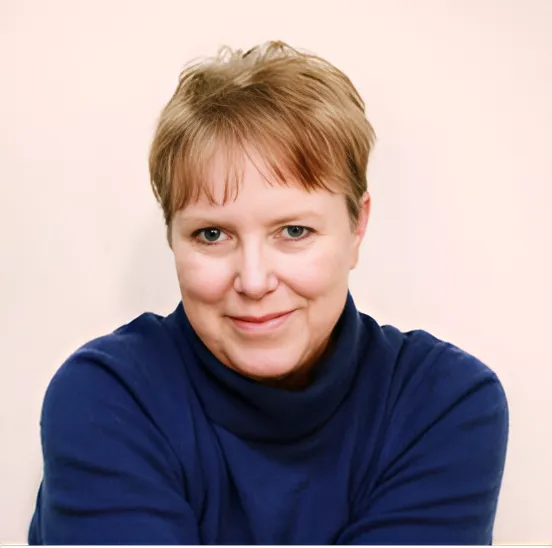
Marcia Goldenstein
Marcia Goldenstein taught painting and drawing at the University of Tennessee from 1976 to 2013 and recently earned the position of Professor Emeritus. Throughout her career she received numerous research, travel and exhibition grants and awards and was the recipient of the Chancellor’s Excellence in Advising Award in 2006. In addition to her extensive teaching experience, Goldenstein exhibited throughout the Southeast and her home state of Nebraska. Her work is included in private and corporate collections all over the country.
Marcia received her B.F.A. and M.F.A. degrees in Painting and Drawing from the University of Nebraska. She taught at the University of Tennessee School of Art for 36 years. She has been a visiting artist at the National Academy of Fine Arts, Bratislava, Slovakia; Sichuan University, Chengdu; Beihang University, Beijing; University of Texas, San Antonio; Arizona State University; University of Indianapolis; Tudor Hall, UK; College of the Ozarks; Knoxville Museum of Art; Eugeniusz Geppert Academy of Fine Arts, Wroclav, Poland, and many other schools and museums. She has an international exhibition record and is represented in numerous public and private collections in the US, Europe, and China.
In 2021 Professor Goldstein was awarded a Tennessee Arts Commission Fellowship.In 2016 she was named Outstanding Alumna at the University of Nebraska Lied College of Fine and Performing Arts. She has also received numerous awards for her paintings.
She is currently Professor Emerita of Painting and Drawing at the University of Tennessee School of Art.
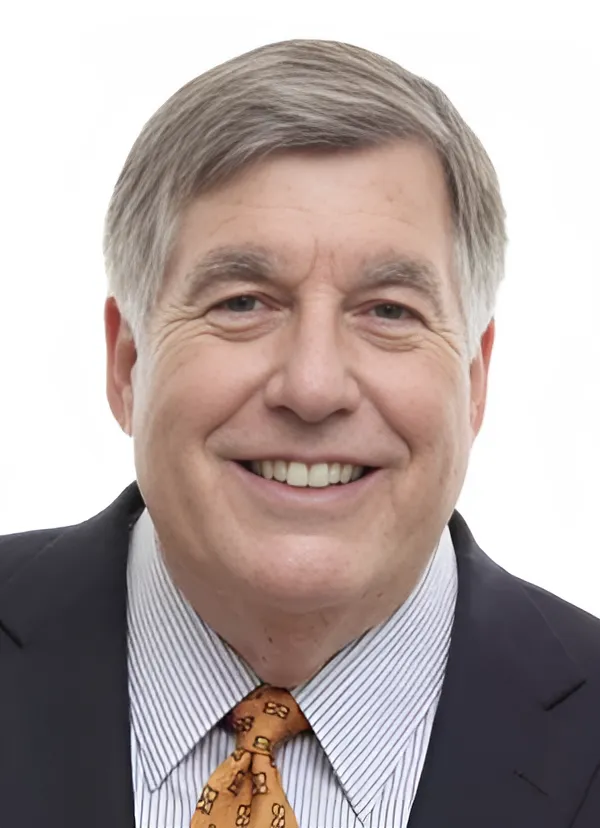
Bob Kesling
For more than 21 years, Bob Kesling has served as the “Voice of the Vols” and is a beloved figure representing the men’s UT basketball team and football program. To say he expertly educated listeners everywhere in the x’s and o’s of sports is an understatement.
He began his association with the University of Tennessee in 1972 as a walk-on fullback for the Vols, and his broadcasting career began in 1974 as a film editor for the Bill Battle Show. Bob served as John Ward’s spotter for Vol Network radio broadcasts in 1976, and from 1978-1999 he served as the voice for the Lady Vol basketball team.
Bob served as the basketball pre-game host and play-by-play announcer in 1989, and then in football broadcasts as a sideline reporter and play-by-play announcer in 1992. His other announcer credits include SEC football & basketball championship games, NCAA Women’s Basketball Final Four, the NCAA Men’s Basketball Tournament, as well as Tennessee baseball.
Bob has graciously served as our emcee for the Educators Hall of Honor induction ceremony for more than a decade and we thank him for his professionalism and dedication.
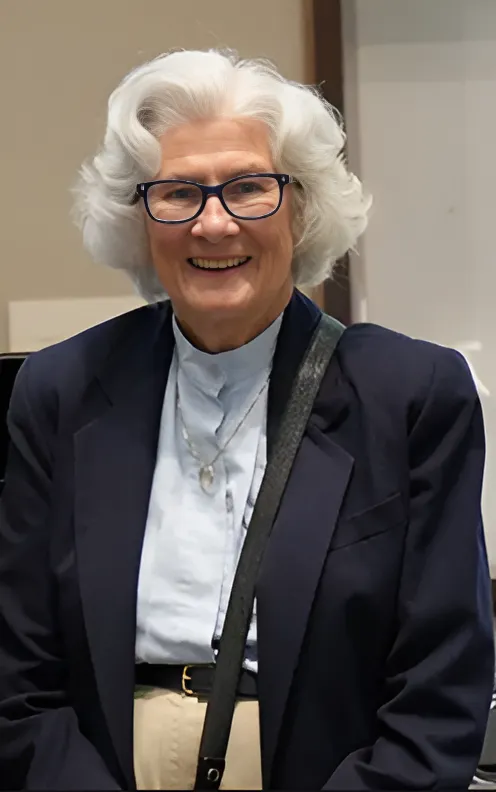
Charmaine Mamantov
Charmaine Mamantov is a chemist, published scientist, 89-year-old grandmother of nine (eight of them women in science), and University of Tennessee emerita faculty member. During her 44-year career, Charmaine embraced new technologies such as computer-based grading and the ever-present, SmartBoard.
Charmaine Bienvenu Mamantov came to Knoxville in 1961 with her late husband, Gleb. As his research partner, Charmaine had her name on several books, papers, and a patent. In 1976, she earned a UT doctorate in education, and taught freshman chemistry with tireless verve.
They visited Gatlinburg on their 1956 honeymoon and returned for Gleb’s appointment to the Department of Chemistry. They researched batteries and molten salt chemistry.
Charmaine graduated from Our Lady of Mercy girls’ Catholic high school in St. Martinville, Louisiana, and was the valedictorian in a class of twelve.
Along with teaching, the Mamantov legacy includes financial support: Charmaine has given to UT for more than 40 years, notably to the Department of Chemistry, which is looking to replace the aging Buehler Hall.
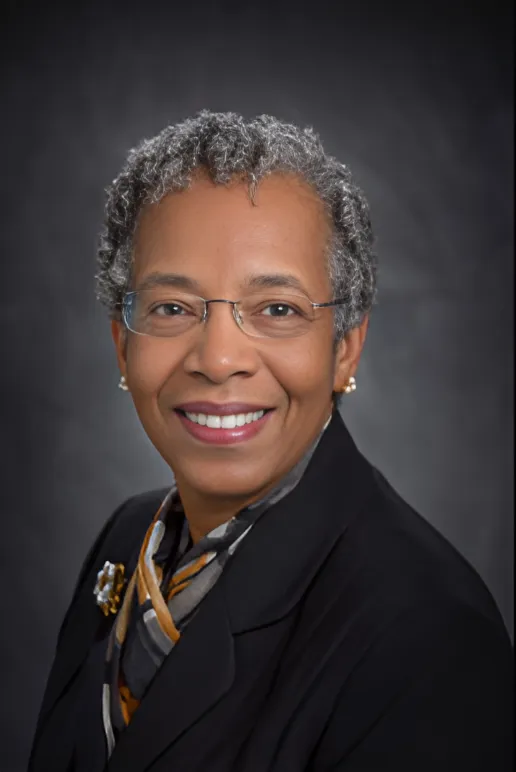
Saundra McGuire
Dr. Saundra Yancy McGuire is the Director Emerita of the Center for Academic Success and retired Assistant Vice Chancellor and Professor of Chemistry at LSU. Prior to joining LSU, she spent eleven years at Cornell University, where she received the coveted Clark Distinguished Teaching Award. She has delivered keynote addresses or presented workshops at over 400 institutions in 46 states and ten countries. Her book, Teach Students How to Learn: Strategies You Can Incorporate into Any Course to Improve Student Metacognition, Study Skills, and Motivation, was released in October 2015 and is a Stylus Publishing bestseller. The student version of this book, Teach Yourself How to Learn: Strategies You Can Use to Ace Any Course at Any Level, was released in January 2018.
The most recent of her honors include the 2017 American Chemical Society (ACS) Award for Encouraging Disadvantaged Students to Pursue Careers in the Chemical Sciences and induction into the LSU College of Science Hall of Distinction. She also received the 2015 American Association for the Advancement of Science (AAAS) Lifetime Mentor Award and the 2014 Lifetime Achievement Award from the National Organization for the Professional Advancement of Black Chemists and Chemical Engineers. She is an elected Fellow of the ACS, AAAS, and Council of Learning Assistance and Developmental Education Associations. In November 2007 the Presidential Award for Excellence in Science, Mathematics, and Engineering Mentoring was presented to her in a White House Oval Office Ceremony. Additionally, she has achieved Level Four Lifetime Learning Center Leadership Certification through the National College Learning Center Association.
She received her B.S. degree, magna cum laude, from Southern University in Baton Rouge, Louisiana, her master’s degree from Cornell, and her Ph.D. from the University of Tennessee, Knoxville, where she received the Chancellor’s Citation for Exceptional Professional Promise. She is married to Dr. Stephen C. McGuire, a professor of physics at Southern University. They are the parents of Dr. Carla McGuire Davis and Dr. Stephanie McGuire, and the doting grandparents of Joshua, Ruth, Daniel, and Joseph Davis.
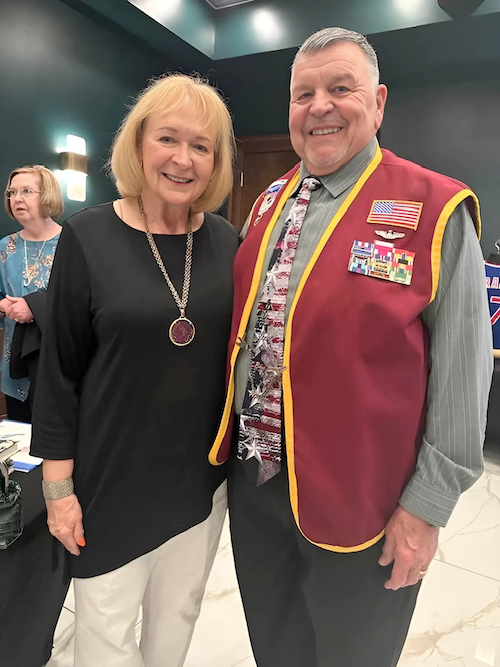
Sherry Morgan
Dr. Sherry Morgan is a native of East Tennessee. She is the daughter of a blue-collar father who proudly served his country as a tail gunner in World War II and a mother who raised three children in the Powell community of Knoxville.
Sherry always knew she wanted to attend the University of Tennessee. She arrived on the Hill in the fall of 1967 as the first in her immediate family to attend college. She enrolled in the College of Home Economics to pursue her dream of working in retail merchandising. That first fall at UT, a high school classmate who was also a freshman asked her out as his homecoming date. More than 50 years later, she and Charlie are still inseparable.
Sherry graduated from UT in 1971 and went to work for Millers Department Store. One of her first assignments was to help open the company’s anchor store at the new West Town Mall in 1972. After a few years of working in retail, which included weekends and evenings, Sherry realized that she and Charlie were ships passing in the night, so she made the decision to go back to school and get her master’s in Elementary Education. That decision changed Sherry’s life and subsequently the lives of thousands of students she would impact over her more than 30 years in education.
She began her career in education at Chilhowee Elementary School where she gained experience across a spectrum of grades from kindergarten to the 6th grade. Her passion to influence the lives of young people led to a desire to have a broader impact. So, she once again returned to UT to pursue her doctorate. This led to 26 years in educational administration including eight years as the Superintendent of Schools for the Roman Catholic Diocese of Knoxville.
Throughout her career, Dr. Morgan was known as an innovator, unifier, and a champion for the educators she led and the students she served. Despite being retired for almost 15 years, Dr. Morgan continues to have a profound impact in the educational community and the Knoxville community at large. She has always embodied the Volunteer creed through her deeds and has dedicated her life’s work to giving light to others.
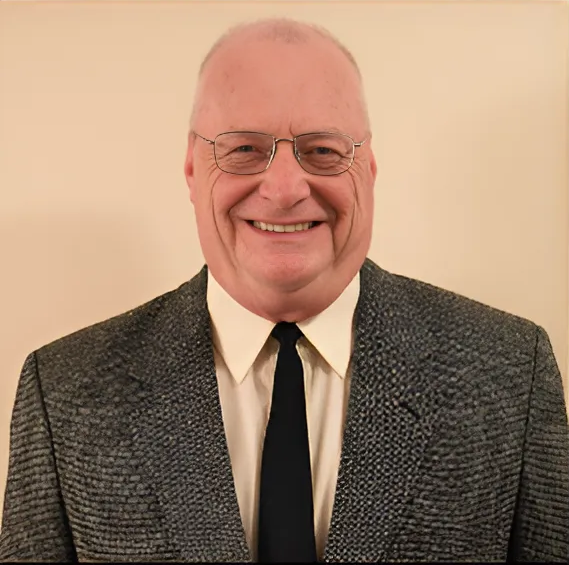
David Royse
Dr. David M. Royse has over thirty-nine years’ experience in the education field. He taught middle and high school band in the Kentucky public schools for five years, then spent ten years as a music education faculty member at Kansas State University, where he was a 1998 recipient of the William L. Stamey Undergraduate Teaching Award from the KSU College of Arts and Sciences.
Dr. Royse was hired at the University of Tennessee in the fall of 2000, where he served as Coordinator of Music Education from 2002 until his retirement at the end of Fall Semester 2024. A frequent presenter at state and national conferences, he authored or co-authored articles in the Journal of Research in Music Education, Bulletin of the Council for Research in Music Education, Journal of Music Teacher Education, Contributions to Music Education, Music Educators Journal, and Teacher Magazine.
He is a Past President for the Southern Chapter of the College Music Society. He was the recipient of a 2004 University of Tennessee Citation for Excellence in Advising and the 2012 University of Tennessee School of Music Faculty Distinguished Teaching Award. Dr. Royse is a 2022 inductee into the Tennessee Music Education Association Hall of Fame.

Kirsten Salonga
Kirsten Salonga graduated from the University of Tennessee, Knoxville, in 2017 with a Bachelor of Science in ecology and evolutionary biology, and a minor in secondary education. Among many other awards, she received the Brent and Rachel Trentham Endowed Scholarship in 2015.
Through the VolsTeach program, Kirsten was able to earn licensure to teach secondary science while completing her bachelor’s degree, and today she is an ESOL (English to Speakers of Other Languages) Environmental Science & Biology teacher at Justice High School in Falls Church, Virginia.
Recently Kirsten received the American Field Service 2025 Educator of the Year Award and is serving as the Diversity, Equity and Inclusion Chair for the Virginia Association of Science Teachers.
In 2024, National Geographic Society and Lindblad Expeditions selected Kirsten as one of 35 PreK-12 classroom and informal educators from across the continent to be part of their 16th cohort of Grosvenor Teacher Fellows. As a Fellow, she had the opportunity to embark on a Lindblad Expeditions-National Geographic voyage, “Exploring Alaska’s Coastal Wilderness,” aboard one of Lindblad Expeditions’ state-of-the-art expedition vessels, National Geographic Quest. Throughout her voyage, Kirsten had hands-on, field-based educational and research opportunities, as well as a once-in-a-lifetime travel experience that she will use to inform her curriculum and inspire her students to become environmental stewards.


